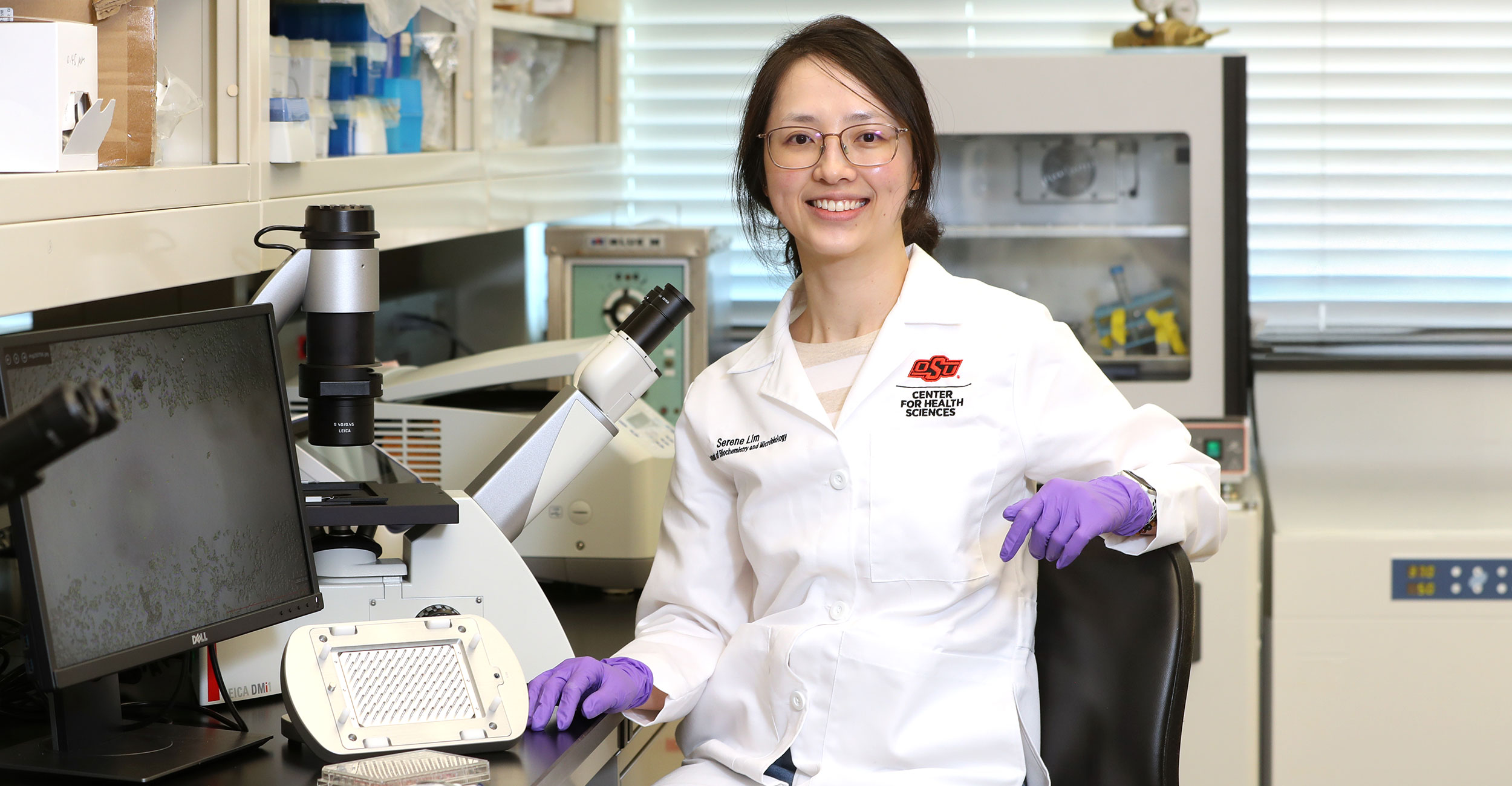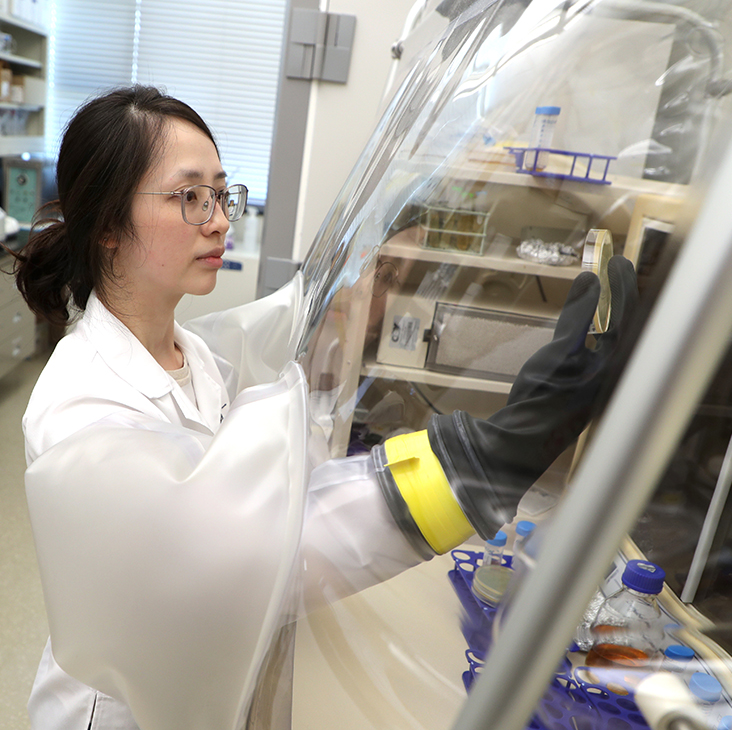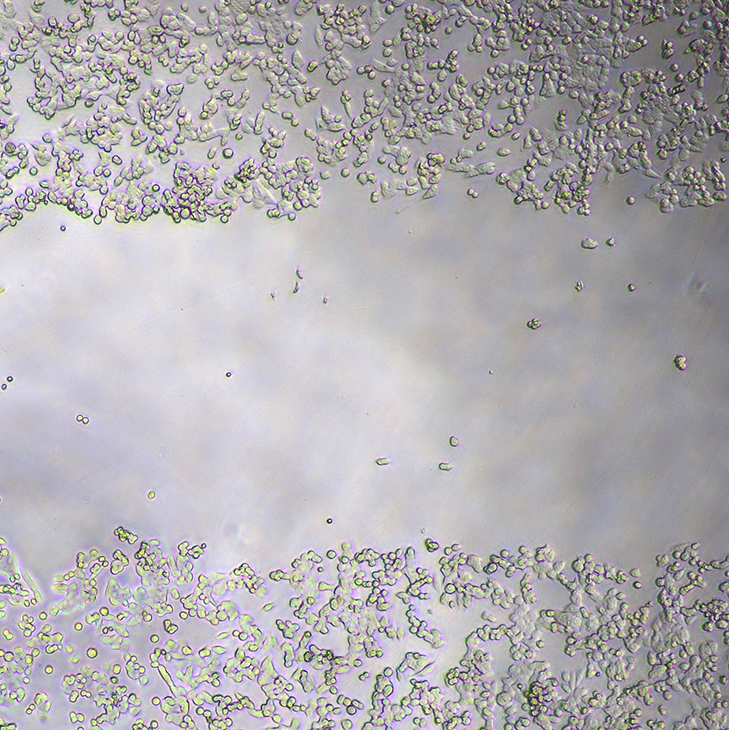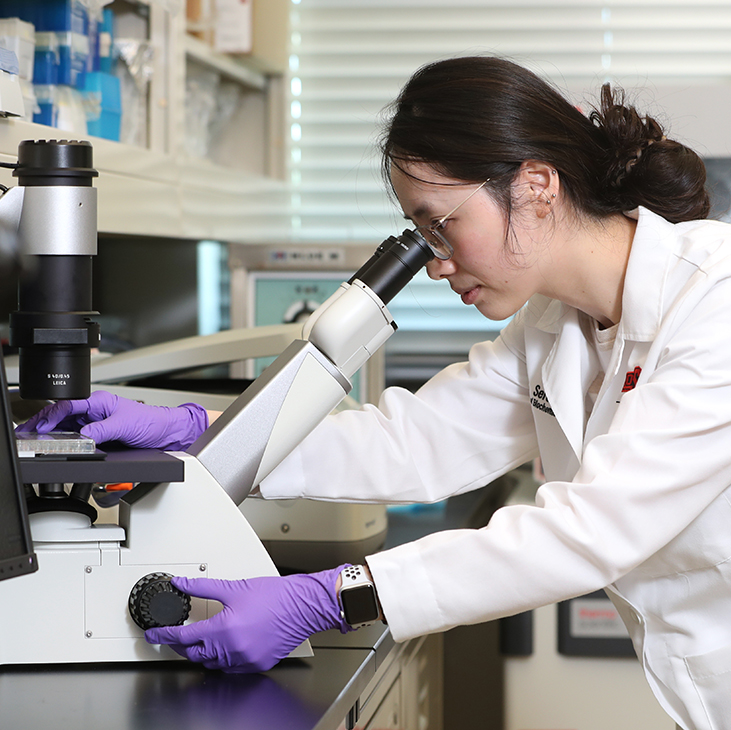
Biomed PhD student awarded Robberson Summer Dissertation Fellowship for her cancer research
Tuesday, September 16, 2025
Media Contact: Sara Plummer | Senior Communications Coordinator | 918-561-1282 | sara.plummer@okstate.edu
Serene Lim, a fourth-year doctoral student in the Oklahoma State University Center for Health Sciences Department of Biochemistry and Microbiology, is researching connections between a bacteria found in the mouth and cancer.
“Fusobacterium nucleatum, it’s in everybody’s mouth. It appears throughout our digestive tract, but it’s most abundant in mouths. If you don’t take care of oral hygiene, it can be associated with some diseases,” Lim said. “Cancer is one of the systemic diseases linked to this bacterium.”
Lim is conducting her research under Dr. George Huang, an assistant professor of microbiology. She and the research team collected 116 saliva samples from people, some with oral cancer and some without.
Lim and the team isolated 11 different F. nucleatum strains and tested how the different strains of bacteria affected cancer cells, including inflammation levels, viability and growth rate and found that some strains are more likely to promote the growth of colon cancer cells.
“Stage 4 oral and colon cancer cells will have more of this bacterium than stage 1,” she said.
Lim also found the genomes of these different F. nucleatum strains and is now in the process of identifying key differences in the genomes that can promote cancer progression and those that don’t.
“If we can target this bacterium in the cancer cells, we have a better chance of treating
cancer patients.”
Earlier this year, Lim was awarded the Robberson Dissertation Fellowship, which supports research for post-candidate doctoral students from OSU. Award winners are given an $8,000 stipend, a tuition waiver and three credit hours.
“I’m mostly a wet lab person. I haven’t done this kind of comprehensive research data before,” she said, and the fellowship will help her continue her research and data analysis until she presents her dissertation in spring 2026.
Huang said Lim being awarded the Robberson fellowship demonstrates how important this research is to OSU.
“It was awesome, it’s really competitive,” he said. “Her work ethic and her expertise, she’s a role model for the other students.”
Lim said the next step is to find out if their findings can be used to develop a treatment.
“If we can target this bacterium in the cancer cells, we have a better chance of treating cancer patients,” she said. “A precursor to cancer is inflammation; cancer cells like inflammation. So anything that can be developed to help decrease inflammation may slow down the cancer cells.”



